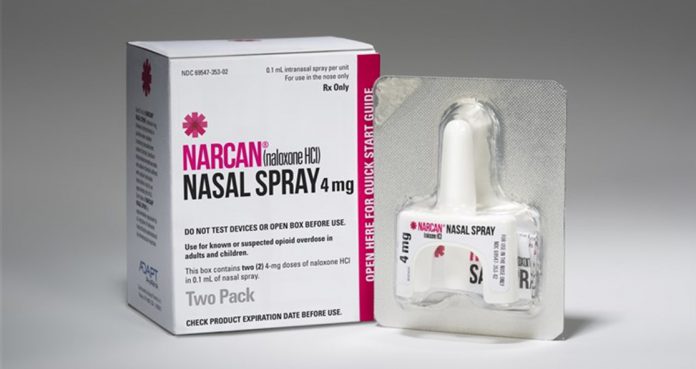Rhode Island health officials are encouraging residents to carry an opioid-overdose antidote called naloxone. This move has been made to tackle the number of opioid overdoses, which often occur in public places.
On Monday, the Rhode Island Department of Health said that in 2018, approximately 34 percent of the opioid overdoses emergency medical personnel had responded to opioid overdoses that have occurred in public places, including streets, stores, parking lots, beaches, and restaurants. The figure has jumped from 31 percent in 2017 and 30 percent in 2016.
The health officials have urged Rhode Island residents to carry naloxone if they are comfortable doing so.
Health Director Nicole Alexander-Scott said that naloxone is available over the counter at pharmacies, which is an easy-to-use nasal spray that acts as an opioid-overdose antidote.
She stated, “This is a changing epidemic. With so many overdoses happening in everyday places, and sometimes in plain sight, everyone can play a role in preventing overdoses and saving lives.”
U.S. Surgeon General Jerome Adams has also urged people to carry naloxone.
Last year, Adams issued the first national public health advisory in 13 years. He suggested more Americans to start carrying naloxone and urged more federal money to be invested in expanding access.
The surgeon hopes those who are at risk for an opioid overdose will keep the antidote on hand and learn how to utilize it.
Naloxone has been made available without a prescription in many states. Nationwide, it is regularly used by first responders.
The FDA has warned on the use of naloxone nasal spray, explaining that some people may experience side effects such as shaking, mild tremors, sweating, nausea or feeling angry, especially when they wake up. Rhode Island had already seen a decrease in opioid drug overdose deaths in the first 10 months of 2018. The annual total is expected to be available within a few weeks.





















